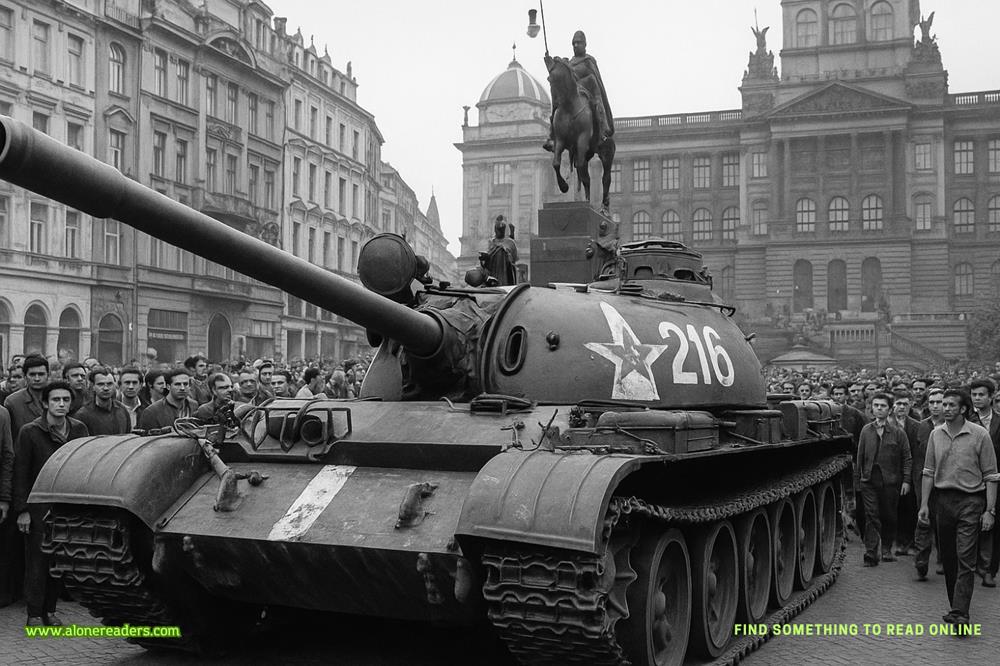Page 1 of Heatstroke
ONE
SALT BURN
The moment his feet touched the dock, Daniel felt the heat claw up his spine like an unwelcome hand.
It was the kind of sun that bleached the air, thickened it, and made it cling to the entire surface of your body. He stepped away from the gangplank with a restrained exhale, the linen of his shirt already damp and clasping his back like a second, disloyal skin.
All around him, the little port of Sainte-Margot buzzed in undisciplined jubilation—tourists calling out in laughter-drowned French, engines hacking at the tide, music coming from no single source, instead seeming to bleed from the trees themselves.
His watch beeped once—a rude, insistent pulse—marking the hour with unasked-for precision. He silenced it with a thumb and let his arm fall. Already the band had printed a ring on his wrist, pale and irritated.
Daniel loathed arrivals.
The boat crew, all bronzed skin and loose-limbed ease, shouted something in Creole and tossed the next passenger's suitcase over the railing with elegant indifference. One of them—barefoot and singing—held up a bottle of something orange andpassed it along the line like communion. There was no urgency to anything, only a slow, salt-blind rhythm that grated against Daniel's need for silence, order, reprieve.
He had come to Sainte-Margot against his better judgment. A favor for a friend-of-a-friend with a guesthouse in need of a tenant and glowing reviews on social media. "You'll hate it for a day and then fall in love," the voice on the phone had promised, syrupy with nostalgia. Daniel hated it already.
Dragging his duffel behind him with visible disdain, he navigated the cracked walkway toward the mouth of the village.
The buildings—mostly two-story structures in fading colors—seemed to lean into one another like they were gossiping. Rust bloomed on balconies, and vines crept freely through shutters left forever ajar. The air smelled of mango rot and engine grease, and above it all, the blunted beat of a bass drum vibrated faintly. It felt as if the island's heart were thudding right beneath his feet.
The sign forThe Breaklinewas nailed crookedly over a paint-chipped veranda. Bar, guesthouse, café—it didn't know what it was and had made no attempt to choose. A tangle of frangipani arched over the front railing, and inside, the reggae was loud enough to disturb the teeth.
Daniel stepped into the tiled foyer and immediately regretted it. The music—he recognized the voice, Peter Tosh or someone trying to be—boomed up through the floorboards as though the foundation itself were suffering through the verse. Somewhere to the left, a fan ticked on a slow axis, managing to move only the scent of warm rum and lemon balm.
"Room Three," the girl at the counter said, without looking up from her phone. "Key's in the door."
He said nothing. He had planned to ask whether there was a quieter section, perhaps one facing the back garden. But the ideaof engaging in any further transaction—with this place, with the day—repelled him.
He climbed the stairs instead, the duffel thumping on each riser like a second heart, and entered the room with the weary precision of a man rehearsing escape.
The ceiling fan above the bed was already spinning, though no one had turned it on.
Daniel closed the door and leaned against it for a moment. Sweat gathered at his collarbone and ran, lazy and unhurried, down his chest. The air was hot and almost sticky, though the ceiling fan was starting to do its job. Outside the window, a bird cried once, harsh and mechanical, like a screwdriver against glass.
Then came the screaming.
It came not from the town, but from the water. A high, slicing wail that turned into gasping panic. Daniel peeled himself from the door and moved, driven by instinct. His body knew how to respond before he'd consented to it.
Down the stairs. Through the foyer. Past the girl who had not looked up before and still didn't look up now. The beach lay beyond the back terrace, and already a loose collection of people was running in no particular formation toward the surf.
Daniel saw the boy in the shallows, thrashing, until he wasn’t.
He ran.
His shoes sank briefly in the wet sand before he kicked them off. A woman to his left was sobbing into her hands, her husband shouting uselessly at the horizon. The tide had pulled the boy outward, and now he floated, facedown, in the churn where the reef dipped just out of reach.
Daniel's breath shortened with each step. The heat, so consuming a moment ago, dropped away into a kind of tunnel.He marked the angle of the waves, the spasm of the tide. He moved into the water, the coolness slicing up his thighs.
And then a flash—dark limbs, strong and fluid—cut through the surf beside him.
A man, barefoot and bare-chested, dove with astonishing grace beneath the current. No hesitation, no drag. A pair of sunglasses vanished beneath the waves with him.
Daniel paused only long enough to watch the man reemerge with the boy in his arms.
Together, they staggered backward, Daniel reaching to support the child's head. He dropped to his knees as soon as the sand was beneath him, fingers already at the neck, behind the jaw. No pulse. No breath. Water gushed from the boy's mouth like a confession.
The other man stood beside them, hands on his hips, breathing with practiced calm.
- Sold to the Silver Foxes by Laylah Snow
- My Brother's Best Friends by Natasha L. Black
- The Rancher's Addiction by Lila Fox
- The Biker's Hidden Obsession by Khloe Summers
- Mile High Coach by Mia Mara
- Off-Limits as Puck by Kate Olivia
- Love Off Course by K. Webster
- Desert Sky by Jax Hart
- Their Darkest Needs by Amaya Jax
- Love & Vendettas by Cassie Verano
- Iron Bride by Molly Briar
- The Omega's Bloodline: Part One by Sierra Cassidy
- Forever In Willow Creek by Jade West
- Where the Blacktop Ends by Sofia Jade
- The Crown of Nyx by Audrey Moore
- Deep Feelings & Shallow Graves by Gwendoline Rose







